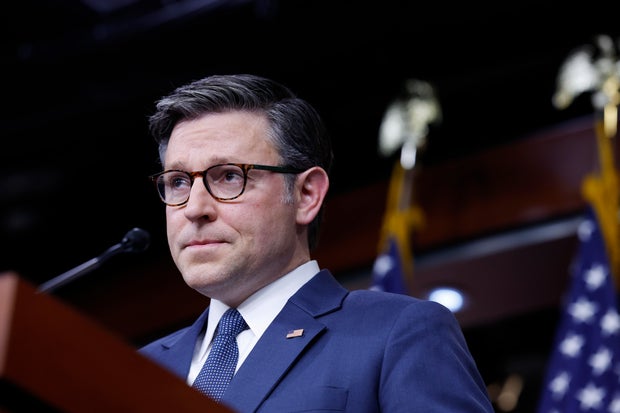Washington — The House and Senate approved a stopgap measure to keep the government funded for three months on Wednesday, sending the legislation to President Biden to stave off a shutdown.
The legislation keeps the government funded through Dec. 20 and also includes around $230 million in additional funding for the Secret Service following the second assassination attempt against former President Donald Trump.
Lawmakers had until Oct. 1 to pass the extension or face a shutdown, and approved the temporary funding measure with some time to spare on Wednesday, as lawmakers leave town for the final sprint toward Election Day.
The Senate vote
The upper chamber passed the stopgap measure Wednesday night, with 78 in favor and 18 opposed. The vote came quickly in the upper chamber, after senators reached a time agreement that gave them up to two hours to debate the bill, fast-tracking its path to passage — and senators’ travel plans.
Ahead of the vote on Wednesday, Senate Majority Leader Chuck Schumer said he was “especially pleased” that Congress is “getting the job done with some time to spare.”
“This is a good outcome for the country,” Schumer said. “There will be no shutdown, because finally, at the end of the day, our Republican colleagues in the House decided to work with us.”
The House vote
The House approved the legislation earlier Wednesday by a vote of 341 in favor and 82 opposed. Ultimately, more Democrats than Republicans backed the legislation, propelling it to the two-thirds majority that was required for passage. All 82 members who voted against the bill were Republicans.
The vote came after Speaker Mike Johnson tried to move forward with a six-month continuing resolution last week that was paired with a noncitizen voting measure, which the House rejected. At the time, a small group of House Republicans joined with most Democrats to oppose the measure.
With few options remaining, Johnson opted to move forward with the clean, shorter stopgap measure that had support across the aisle, though conservatives still opposed the strategy. Unable to get the measure out of the House Rules Committee amid conservative opposition, House leaders moved forward with the legislation under suspension of the rules, making the two-thirds majority necessary for passage.
The maneuver has become common in this Congress, with a razor-thin GOP majority — and a group of reliable conservative detractors — that makes partisan legislation difficult to pass. Instead, GOP leaders have often had to rely on Democrats to approve must-pass legislation, to the dismay of some members in their party.
Johnson said ahead of the vote that “it would be political malpractice to shut the government down,” noting that while GOP leadership dislikes continuing resolutions, it represented “the last available play.”
The coming funding fight
The House and Senate are departing for a lengthy recess and won’t return until after the Nov. 5 election. With the three-month funding measure, they’ll face a pre-holiday deadline to prevent a shutdown after their return.
House Republicans have fretted about the outcome, which Congress frequently falls back upon and has in the past led to a vote on a massive spending bill known as an “omnibus.” But Johnson said on Tuesday that House leadership opposes an omnibus funding package around the holidays.
“I have no intention of going back to that terrible tradition,” Johnson said, suggesting that he would push to approve the 12 full-year spending bills individually after the election.
Whether lawmakers can do so in the lame-duck session remains to be seen. House Republicans have so far approved a handful of the full-year spending bills, although they’ve done so on a partisan basis that makes them nonstarters in the Senate. Meanwhile, the upper chamber has yet to vote on any individual spending bills this year.
Schumer said the three-month extension will give appropriators more time to “fully fund the government before the end of the year,” acknowledging the bipartisanship that will be required.
“I hope this positive outcome of bipartisanship can set the tone for more constructive bipartisan work when we return in the fall,” Schumer said Wednesday.

